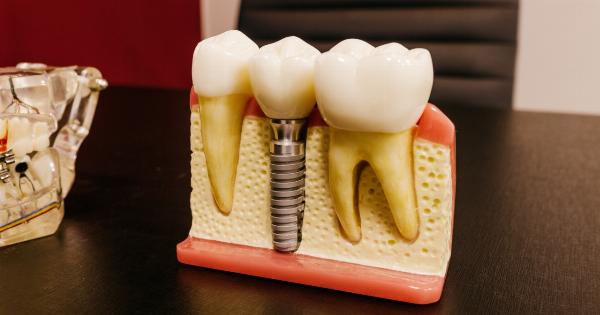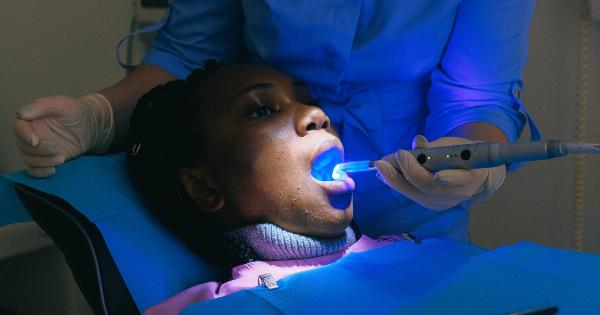Dry mouth, also known as xerostomia, is a common condition that affects many people around the world. It often causes discomfort and can lead to dental problems if left untreated.
In this article, we will discuss what causes dry mouth and what you can do to alleviate the symptoms.
Causes of Dry Mouth
Dry mouth can be caused by many factors, including:.
1. Medications
Many medications have dry mouth as a side effect, including antihistamines, decongestants, painkillers, and antidepressants.
2. Medical Conditions
Medical conditions such as diabetes, autoimmune disorders, and Parkinson’s disease can also cause dry mouth.
3. Aging
As we age, our bodies produce less saliva, which can cause dry mouth.
4. Radiation Therapy
People undergoing radiation therapy for cancer may experience dry mouth as a side effect.
Symptoms of Dry Mouth
The symptoms of dry mouth can vary from person to person but may include:.
1. Sticky or Dry Mouth
One of the most common symptoms of dry mouth is a feeling of stickiness or dryness in the mouth.
2. Bad Breath
Without adequate saliva to wash away bacteria, dry mouth can often lead to bad breath.
3. Difficulty Swallowing and Speaking
Without saliva to moisten food and reduce friction, swallowing and speaking can become difficult.
4. Dry, Cracked Lips
People with dry mouth may experience dry, cracked lips due to the lack of moisture in the mouth.
Treatments for Dry Mouth
There are several treatments available to alleviate the symptoms of dry mouth:.
1. Hydration
Drinking water regularly can help keep your mouth moist and prevent dry mouth.
2. Sugar-Free Gum and Candy
Sugar-free gum and candy can help stimulate saliva production, which can alleviate dry mouth symptoms.
3. Prescription Medications
If your dry mouth is caused by medication, your doctor may be able to prescribe an alternative medication to alleviate the symptoms.
4. Over-the-Counter Products
There are many over-the-counter products available to help alleviate dry mouth symptoms, including mouthwashes, gels, and sprays.
Preventing Dry Mouth
There are several steps you can take to prevent dry mouth:.
1. Avoid Dehydration
Drinking plenty of water and limiting caffeine and alcohol can help prevent dehydration and dry mouth.
2. Maintain Good Oral Hygiene
Brushing and flossing regularly can help prevent tooth decay and gum disease, which can lead to dry mouth.
3. Avoid Mouth Breathing
Mouth breathing can dry out your mouth, so it’s best to breathe through your nose whenever possible.
4. Visit Your Dentist Regularly
Your dentist can help identify and treat any dental issues that may be causing dry mouth symptoms.
























